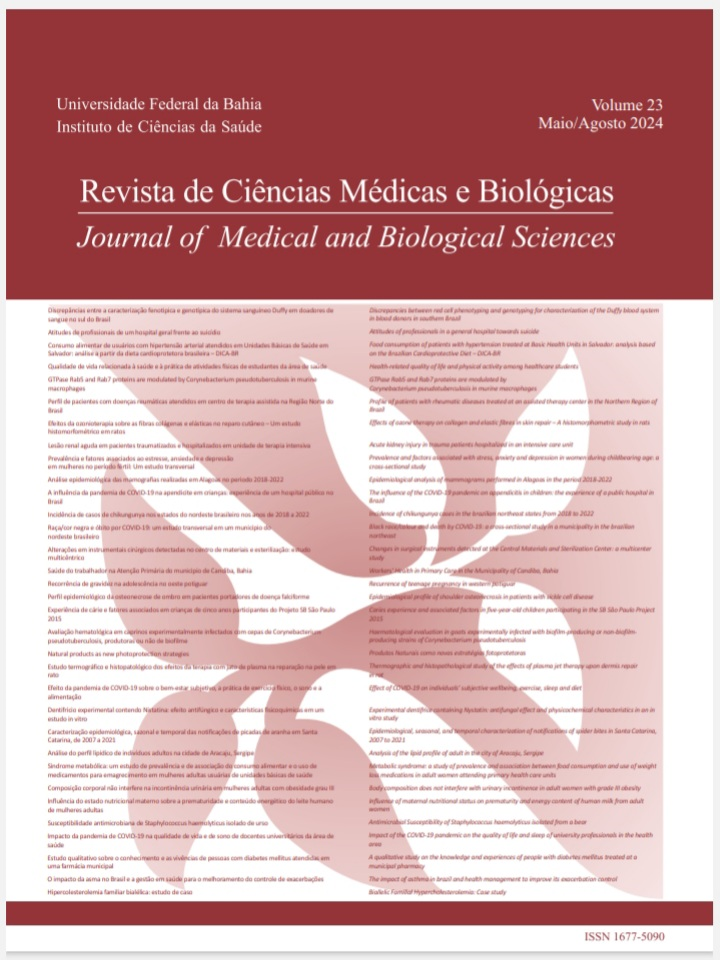Discrepancies between red cell phenotyping and genotyping for characterization of the Duffy blood system in blood donors in southern Brazil
DOI:
https://doi.org/10.9771/cmbio.v23i2.55152Keywords:
DDuffy blood group genotyping, discrepancies phenotype-genotype, serological testing, real-time PCRAbstract
Introduction: Genetic variants in the ACKR1 (FY) gene which encode Duffy red blood cell antigens, may result in weakened expression of antigens or null phenotype. Genetic variants are main reason that led to discrepancies between phenotype and genotype. Molecular methods are a tool for the limitations of hemagglutination assays. Objective: In this study, we investigated discrepant results between serology and molecular tests for the Duffy system in blood donors from a blood center in the northwest region of Rio Grande do Sul, Brazil. Methods: We studied 80 blood donor samples by serological method, real-time PCR, and gene sequencing. Results: Of these 80 samples phenotyped for Fya and Fyb antigens and genotyped for SNPs rs12075 (c.125G>A) and rs2814778 (c.-67T>C), 3 (3.75%) discordant samples were observed. Considering these results, the estimated kappa value for the genotype-phenotype agreement was 0.936 (95% CI 0.865-1.000). We identified in one of the samples an SNP c.265C>T (rs34599082). We did not identify variants in the other two samples, one of them phenotyped as Fy(a+b-) and the other had phenotype Fy(a-b+) both were genotyped as FY*A/FY*B genotype respectively, these samples should express the Fyb and Fya antigens. Conclusion: Genotyping of SNPs rs12075 and rs2814778 were concordant and showed that genotyping, as well as phenotyping, is essential to ensure 100% accuracy for Duffy blood group assignments. Sequencing is an important tool for resolving phenotype/genotype conflicts that identify alleles that carry mutations that lead to weak expression or silencers and also the identification of new variants.
Downloads
Downloads
Published
How to Cite
Issue
Section
License
Copyright (c) 2024 Journal of Medical and Biological Sciences

This work is licensed under a Creative Commons Attribution 4.0 International License.
The Journal of Medical and Biological Sciences reserves all copyrights of published works, including translations, allowing, however, their subsequent reproduction as transcription, with proper citation of source, through the Creative Commons license. The periodical has free and free access.


